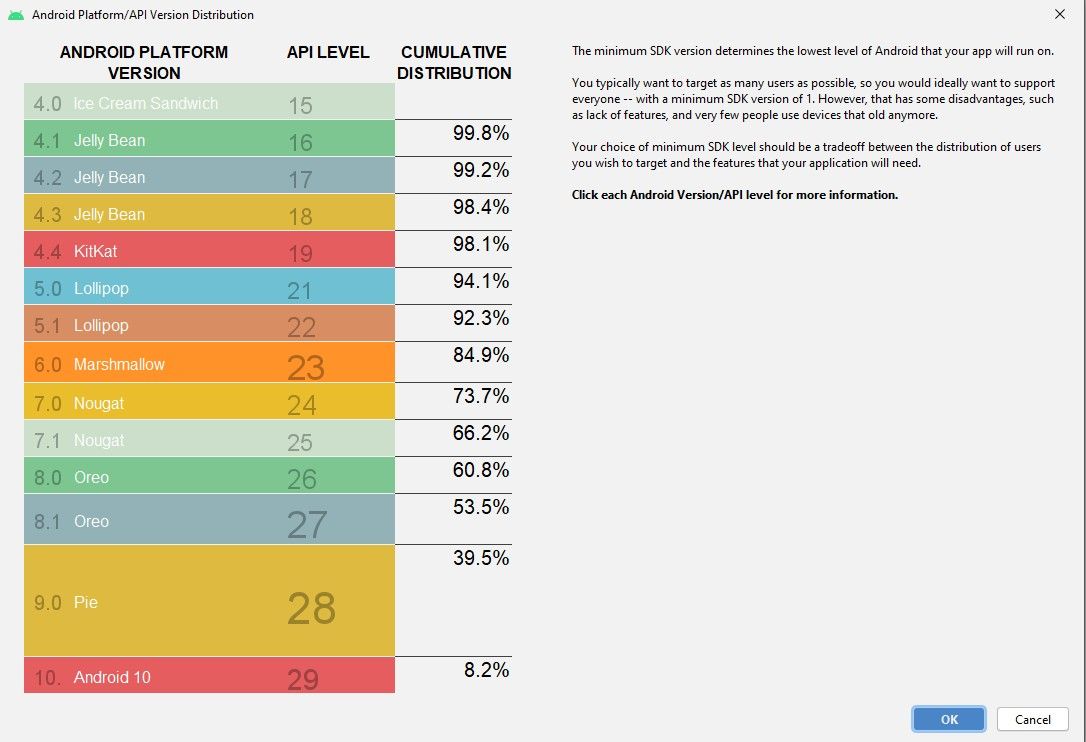-
Notifications
You must be signed in to change notification settings - Fork 12.9k
New issue
Have a question about this project? Sign up for a free GitHub account to open an issue and contact its maintainers and the community.
By clicking “Sign up for GitHub”, you agree to our terms of service and privacy statement. We’ll occasionally send you account related emails.
Already on GitHub? Sign in to your account
Update Android API level to 21 in CI #78601
Conversation
This is required to use accept4() on Android, which is already exposed by the libc crate.
|
Thanks for the pull request, and welcome! The Rust team is excited to review your changes, and you should hear from @kennytm (or someone else) soon. If any changes to this PR are deemed necessary, please add them as extra commits. This ensures that the reviewer can see what has changed since they last reviewed the code. Due to the way GitHub handles out-of-date commits, this should also make it reasonably obvious what issues have or haven't been addressed. Large or tricky changes may require several passes of review and changes. Please see the contribution instructions for more information. |
|
I also implemented an alternative fix for If that is preferable, these is no need to merge this. |
|
Does this mean that people who use the android related Rust targets can't target older Android devices any more? If so, I think this shouldn't be merged, because Android distribution numbers show that API levels < 21 were still in use by 5.9% of deployed devices: Related: rust-lang/release-team#2 |
|
Well, as it stands, there is at-least one issue in the If the aim is to keep supporting older Android targets then it doesn't make sense to merge this. In that case I think rust-lang/libc#1968 is a better solution. That will fix So it really boils down to: should Rust keep supporting older Android targets? |
|
I think there are three questions here:
The last increase was in #45580 , oct 2017 when the level was changed from 9 to 14. This post says that in nov 2017, API version 10 was used by 0.5% of users. It was the only listed API version before 15, and given honeycomb has barely been deployed at all, I guess it amounted to all users. So back when the update to 14 happened, basically >99% of deployed devices already had API level 14. If you use this "two nines" rule, requiring that at least 99% of users support the new minimum version, then one could only update to API level 17.
According to man, the accept4 syscall was added in Linux 2.6.28. According to Wikipedia, Android 1.6 (API 4) already used this kernel version by default. I presume that OEMs do ship older kernel versions with newer OS/API versions, so maybe newer phones might still use the kernel, or the OEM's kernel fork might just have updated the version number. But I doubt that this is going to be a problem here. Edit: forgot the conclusion: I think it's fine to call the syscall directly and make the android target use it. If it turns out to be a problem one can always reconsider. |
|
note: we tried to raised to API 17 in #71123 half a year ago, but the PR was closed due to inactivity. |
Implement accept4 on Android as raw syscall. This PR implements `accept4()` on Android using `syscall()` instead of the `accept4()` wrapper. This is done because the `accept4()` wrapper wasn't added to Androids `libc` until version 5.0 (API level 21). By using `syscall` directly, `accept4` will also work on older Android versions. The kernel itself has supported it since Linux 2.6.28, which was shipped with stock Android since version 1.6 already: https://en.wikipedia.org/wiki/Android_version_history#Android_1.6_Donut_(API_4) At the moment, the CI for the rust repo still uses API level 14. Although I also opened a PR to bump that too: rust-lang/rust#78601. However, it might make sense to keep the old API level in CI if this is merged.
Implement accept4 on Android as raw syscall. This PR implements `accept4()` on Android using `syscall()` instead of the `accept4()` wrapper. This is done because the `accept4()` wrapper wasn't added to Androids `libc` until version 5.0 (API level 21). By using `syscall` directly, `accept4` will also work on older Android versions. The kernel itself has supported it since Linux 2.6.28, which was shipped with stock Android since version 1.6 already: https://en.wikipedia.org/wiki/Android_version_history#Android_1.6_Donut_(API_4) At the moment, the CI for the rust repo still uses API level 14. Although I also opened a PR to bump that too: rust-lang/rust#78601. However, it might make sense to keep the old API level in CI if this is merged.
|
Considering that rust-lang/libc#1968 is almost certainly getting merged, and this seems to be a hairy topic, I'm closing this :) |

I ran into a problem with #78572 because the Android API level in CI is pretty old. The
accept4()function is exposed by thelibccrate, but it is added in Android 5.0 with API level 21 (released in June 2014). Currently, the CI is still on API level 14 in most cases.So I was wondering: should we just update the API level in CI to 21? I think the alternative would be to remove the
accept4()function from thelibccrate for Android, but that would break crates that use it.